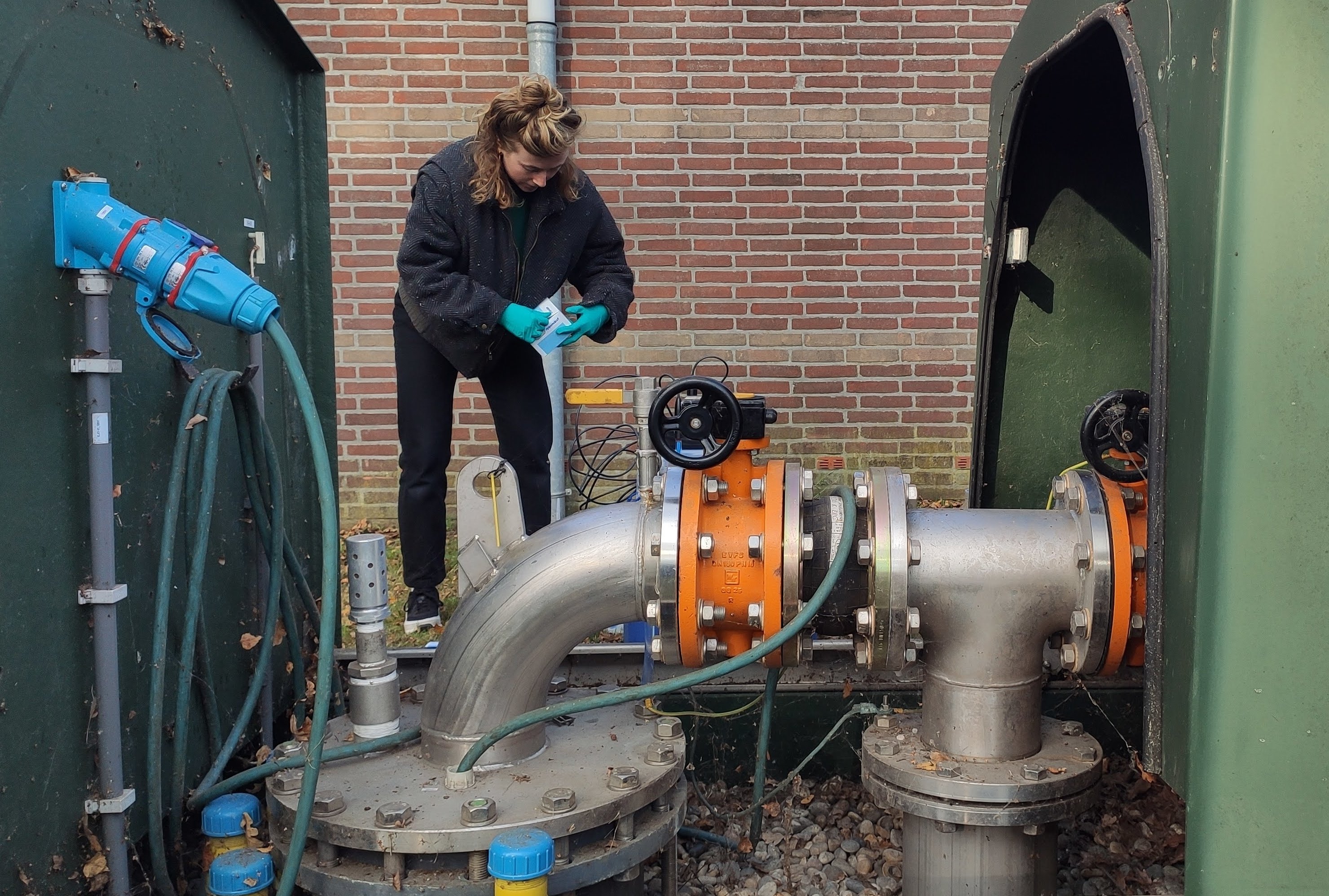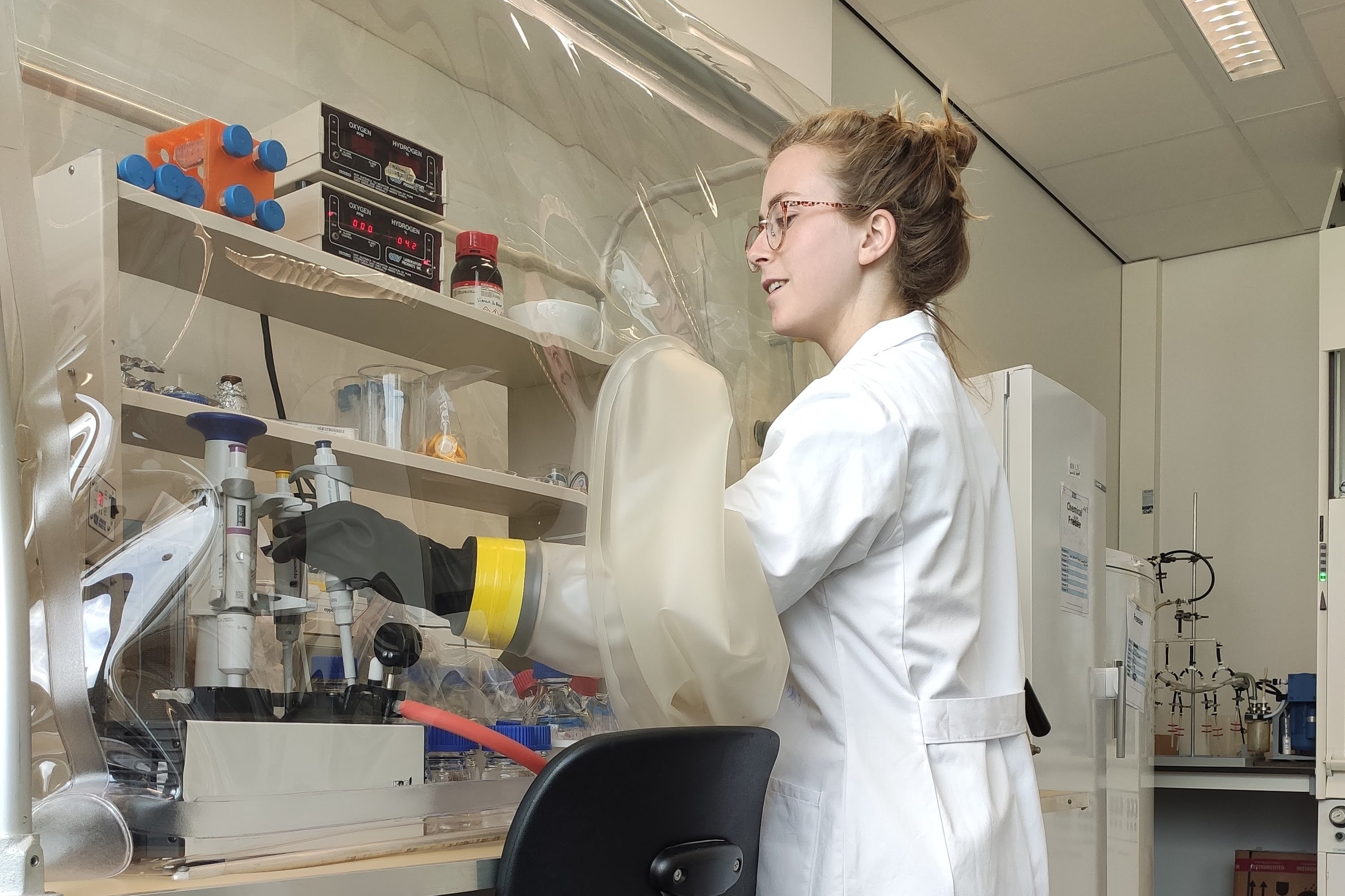Solution for iron waste to make drinking water sector more sustainable
To produce drinking water iron is removed from groundwater. In the Netherlands alone, an estimated 100,000 tonnes of iron waste is generated each year in the production of drinking water. But what happens to this waste stream? Roos Goedhart, Doris van Halem and Mark van Loosdrecht from TU Delft want to develop a whole new way of extracting iron from drinking water and reducing and reusing iron sludge waste. This is an important step towards making the production of drinking water more sustainable. With help from a NWO Open Mind grant they can now carry out their plan.
The researchers remove iron from water in an anaerobic way. In this method, the iron that is removed in the treatment of drinking water is converted in the valuable and compact mineral vivianite. This reduces the sludge volume by two thirds and results in faster and better removal efficiency. Vivianite is a mineral with market value because it can be used, for example, in the production of batteries or as a fertiliser. In this way, iron sludge is no longer a waste product but a valuable new resource. The project is called 'From waste to value: vivianite precipitation to recover iron from anaerobic groundwater'.
In the pitch below, Roos Goedhart explains how the method they want to develop differs from the way drinking water is produced today.
About Open Mind
Each year, NWO's domain of Applied and Technical Sciences awards five Open Mind grants of 50,000 euros for socially relevant research off the beaten track. The aim is to find unusual research ideas that contribute to creative and sustainable solutions for societal challenges. The jury judged the 'From waste to value' proposal to be a solution for an urgent problem with great potential impact.


